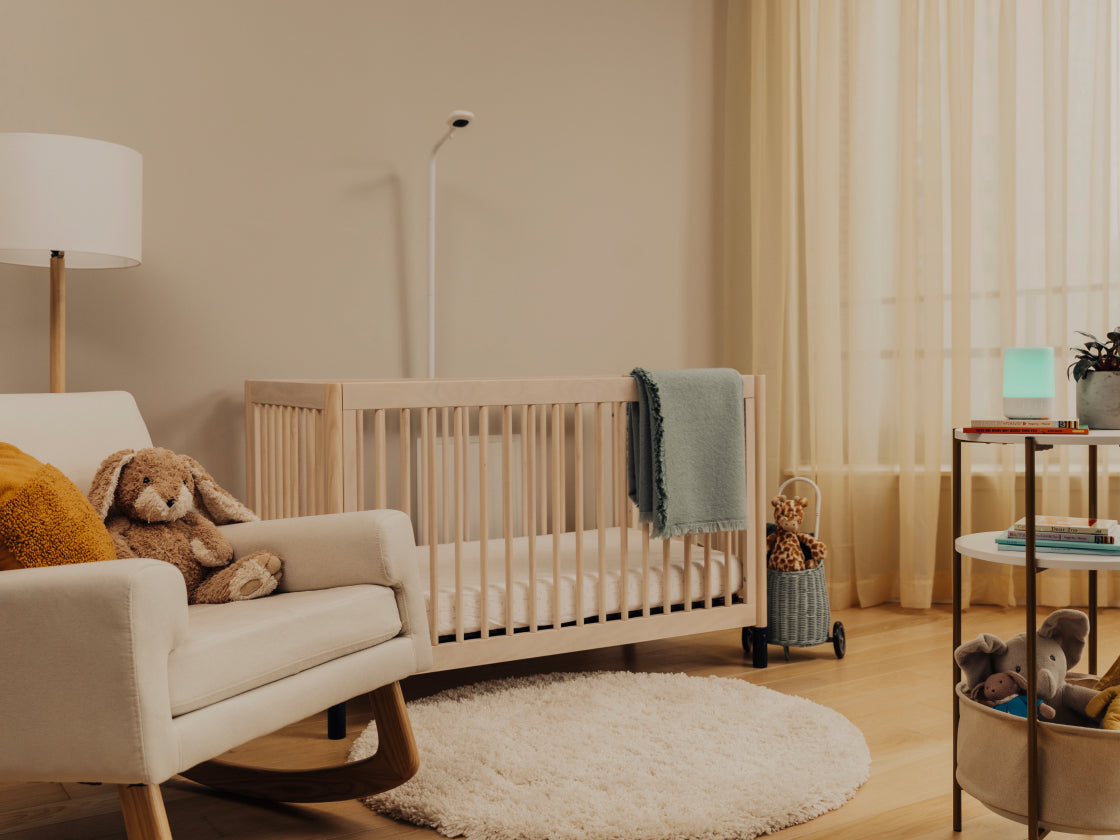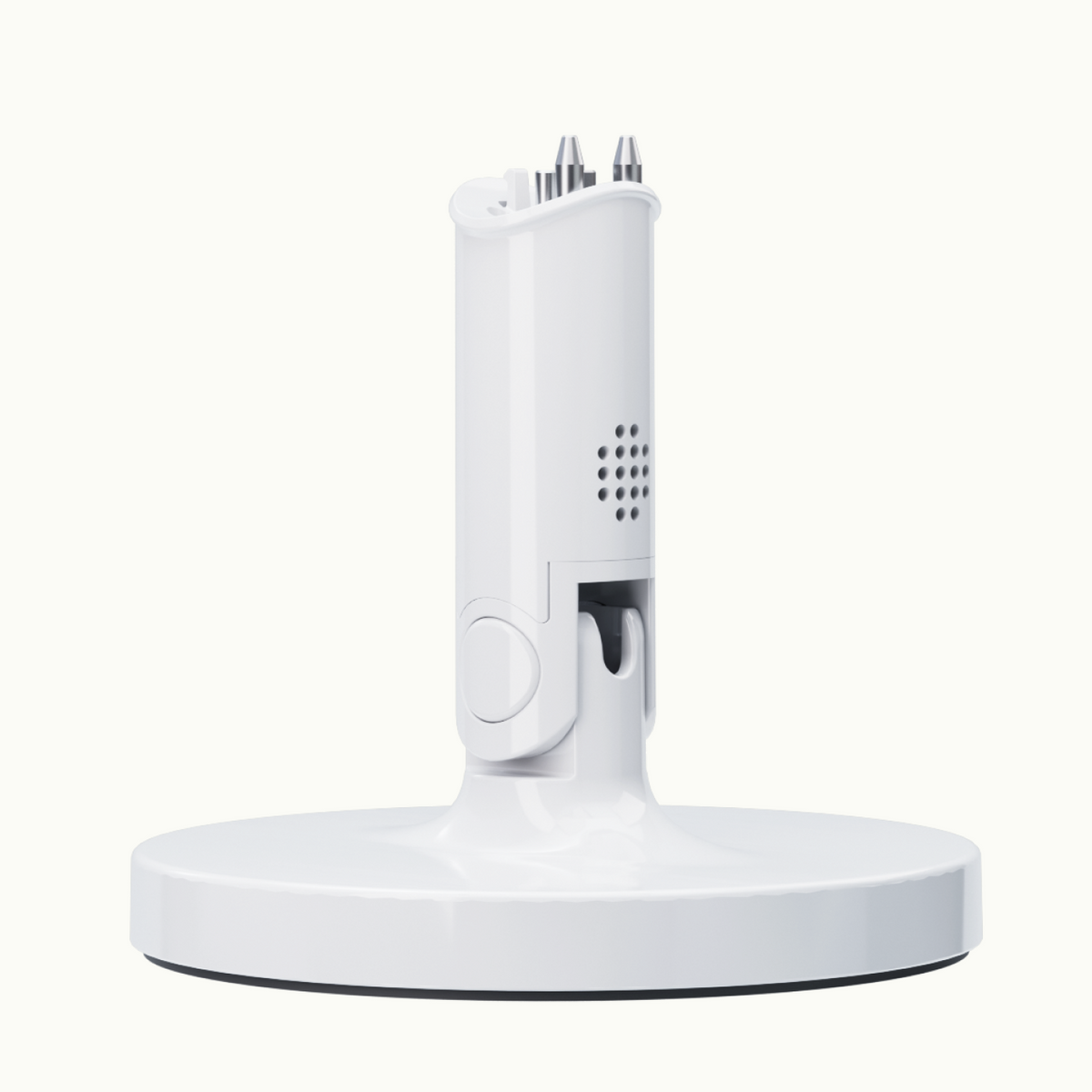For many new parents, the early months can be a total whirlwind of emotions, filled with both the highest of highs and lowest of lows of caring for a newborn. But for Sarah Bailey, her son Ben’s lack of sleep (and by extension, her own) had started becoming a significant source of stress and exhaustion.
As a Nanit user, Sarah knew firsthand the importance of sleep, and how Nanit’s arsenal of sleep solutions and active community empowers parents with the resources they need to get there. Sarah's journey began with joining the Nanit Community shortly after her son Ben's birth in July, 2023. She found the Nanit Connect Forums and “Inbox” tabs within the Nanit app particularly helpful in addressing her concerns around his sleep.
“It was the timely suggestions and recommendations that showed me that Ben's sleeping habits needed a major overhaul,” Sarah says.
Sarah described Ben's sleep as "scattered and unpredictable." False starts, frequent night wakings, and a reliance on feeding every few hours left Sarah and her husband tending to Ben an average of five times a night, sometimes even reaching 22. The lack of sleep impacted Sarah’s struggle with postpartum depression, as the fatigue she experienced made it difficult to do anything, including enjoying her role as a new mom.
"My husband had to call out of work several times out of concern for being a safety hazard on the road while driving,” Sarah recalls. “It left me feeling overwhelmed and run down; my life was dictated by sleep -- or lack thereof! We felt trapped and stressed, unable to enjoy time outside of the house with family and friends.”
Desperate for a solution, Sarah connected with Dr. Natalie through a Nanit Community sleep consult giveaway. Dr. Natalie's approach resonated deeply with Sarah. "We knew we needed help and Natalie felt like a friend with encouragement, patience and evidence-based tactics,” says Sarah. “Short-term pain for long-term gain' was the phrase Natalie introduced early on. This kept us hopeful and committed to the work of sleep training."
Dr. Natalie addressed Sarah's anxieties about the cry-it-out method and instead, focused on gentle sleep training techniques. She identified that while Ben did need nourishment at night, he was also developmentally ready to sleep for longer stretches.
“Natalie's process wasn't about leaving Ben in his room for 12 hours to cry it out; a sleep training tactic I could not get on board with even though our pediatrician had recommended it,” Sarah says.” Rather, Natalie gave Sarah and her husband a plan that let them intervene if Ben’s cries became hysterical, but also allowed for him to get back to sleep on his own if he was fussing.
Dr. Natalie's plan addressed several key areas:
- Pacifier weaning: This helped Ben discover his hands as a self-soothing tool.
- Increased daytime calories: Packing in more solid feeds ensured Ben wouldn't be as hungry at night.
- Consistent bedtime routine: Establishing a predictable routine signaled to Ben that it was time to wind down.
- Respecting self-soothing attempts: Allowing Ben some time to work through fussiness before intervening helped him develop self-calming skills.
- Gradual weaning of night feeds: Switching to a bottle of pumped milk and gradually reducing the quantity helped Ben adjust to longer stretches without nighttime feeding.
One of the most significant takeaways for Sarah was allowing Ben to cry – not to the point of hysteria, but enough for him to practice self-soothing. "He has everything he needs, and his crib is a safe space," Sarah says.
Another key lesson involved the importance of balance. "It's okay not to intervene at every grumble," Sarah says, "but also to have the freedom to perform a safety check when needed." Additionally, Sarah found that maintaining a consistent daytime nap schedule played a crucial role in regulating Ben's nighttime sleep.
Most importantly, Dr. Natalie's flexible approach was a game-changer. "She adapted to our specific needs and comfort level," Sarah says, "which ensured this was a process we could commit to."
Upon establishing their new sleep regimen, the results were nothing short of transformative. Within a week of working with Dr. Natalie, Ben slept through the night for the first time. He still wakes occasionally, but now puts himself back to sleep independently. He’s also happier, more energetic, and can put himself to sleep for naps and at night.


The impact extended far beyond the nursery. Sarah, finally getting a good night's sleep, felt a renewed sense of well-being. "I can trust that when I put my son down for sleep, he will sleep," she says. The entire family dynamic changed. Both parents had more energy and started enjoying their time together as a family.




